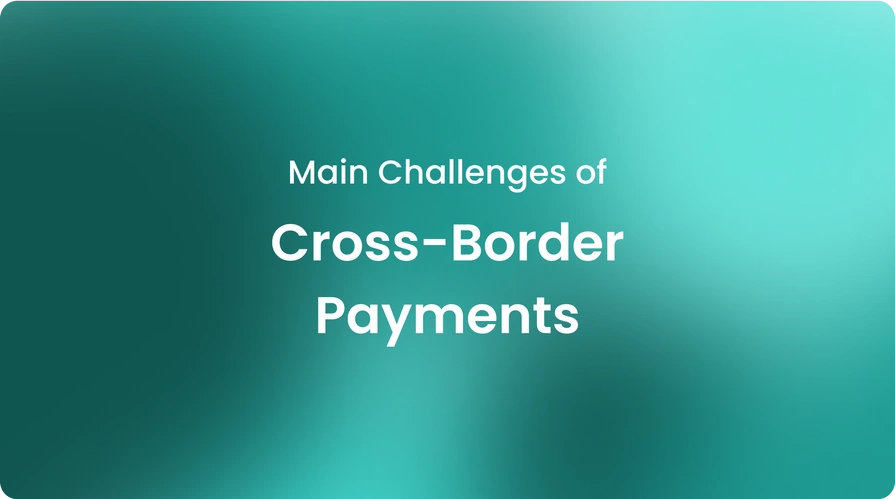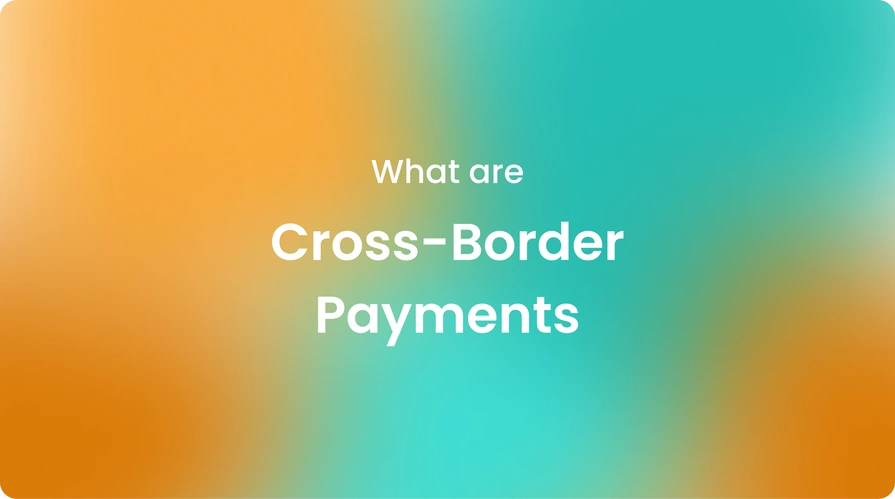|stablecoins, knowledgehub
What Are the Main Challenges of Cross-Border Payments?

Cross-border payments and international money transfers are essential tools in our increasingly globalized world, but there are some main challenges of cross-border payments.
As someone looking to send or receive money abroad for business, travel, or other needs, navigating cross-border payments is frustratingly difficult. Fortunately, new technologies are emerging that promise more convenient and affordable options.
In this blog, we'll explore the challenges of cross-border payments and how stablecoins and euro stablecoin platforms, such as EURK and Cryptobunq, could help unlock tremendous value for users around the world.
Sending money across borders is notoriously tricky due to multiple challenges. Currency and cryptocurrency exchange rates and fees imposed by banks or crypto platforms may lack transparency, resulting in unclear costs.
Most transfers take 2–5 business days to complete with normal currencies, though sometimes even longer. Additionally, there is always the risk of errors in addresses or account details, which delay transfers even further. Cryptocurrencies take much shorter to complete cross-border payments.
A lack of interoperability between different payment infrastructures also causes problems. Moving money between countries requires handoffs between multiple intermediaries, like correspondent banks.
Miscommunication or legal issues at any point in this chained system can interrupt the flow of funds. These inefficiencies drive up costs as banks build buffers into their prices.
What are the basics of cross-border payments?
Simply put, cross-border payments allow the transfer of funds from a source in one country to a recipient in another country. While personal remittances from migrants to family members abroad are a major use case, international B2B payments are also increasingly common in our globalized world.
According to one estimate, the overall cross-border payments market will reach $30 trillion in transaction value by 2027. Despite high volumes, current options for cross-border transfers have significant shortcomings.
Traditional methods rely on slow bank wires that take days to complete and often involve hidden fees. Even digital alternatives have limits and impose their own charges.
A 2015 World Bank survey found the average cost of sending USD 200 internationally was an astonishing 7%, and costs are often higher for lower-value transfers.
What is the biggest challenge in cross-border payments?
There are a few challenges that are more prominent than the others. However, lack of interoperability between different payment infrastructures and lack of transparency are two major challenges that plague cross-border payments.
As discussed earlier, moving money across borders involves multiple intermediaries, like correspondent banks in different countries. Each of these banks has its own technical infrastructure and internal processes. This fragmented nature of the systems used results in a lot of friction in the system.
Lack of standardization forces banks to spend resources to integrate with every other bank to enable fund transfers between regions. This drives up costs.
Secondly, cross-border payment systems lack transparency. The true costs associated with international money transfers are not clearly communicated to users upfront.
Complex pricing structures, a lack of pre-disclosure of fees, and difficulties in estimating exchange rates make it challenging for users to compare options and understand the actual cost. Additional charges are often added during transactions without consent, adding to user frustration with the industry.
How can we overcome the challenges of cross-border payments?
New technologies are emerging that could help address the long-standing challenges of cross-border payments. For one, stablecoins like EURK offer a common platform for value transfer between jurisdictions, avoiding currency exchange inefficiencies.
It is possible to transfer value across borders with ease thanks to EURK's secure issuance and full backing by real fiat reserves of euros.
Cryptobunq offers a comprehensive platform with its custody and wallet, exchange APIs, and blockchain payment solutions for both personal and business cross-border transfers using EURK stablecoin.
By leveraging blockchain technologies, these solutions allow near-instant settlement finality. Cryptobunq's compliance controls also give users and merchants regulatory assurance while keeping costs low.
Additionally, open standards like those proposed by the Faster Payments Council could help drive wider interoperability between legacy systems and crypto service platforms like CBQ.
As adoption of such standards grows, overall system efficiency will increase, translating to lower prices and a better user experience over time. Collaborations between fintech startups, incumbents, and regulators will be key to fully solving the global payments problem.
What is a cross-border payment with stablecoins?
Stablecoins offer a compelling new rail for cross-border payments due to their global accessibility, near-instant settlement, and ability to move value across borders at a low cost. Being digital and not tied to any specific jurisdiction, stablecoins can provide a unifying payment mechanism globally.
Users can send and receive money almost as easily as sending a text message with stablecoins like EURK, which are 1:1 backed by real euros.
By using an EURK euro stablecoin wallet on Cryptobunq', a merchant in Europe can pay a supplier in Asia and avoid currency exchange fees entirely. The payment will arrive almost instantly and with minimal transfer fees.
Similarly, with cross-border peer-to-peer EURK transfers, individuals can send money to friends and family members living abroad quickly and inexpensively compared to wire transfers priced at a percentage of the amount sent.
EURK's price stability as a euro-based stablecoin ensures recipients receive the appropriate currency value without volatility risk. Over time, as more platforms integrate EURK payments, stablecoins could develop into a widely used global infrastructure.
What is the safest euro stablecoin?
Among the growing number of euro stablecoins, EURK stands out as one of the most secure and trusted options. As a crypto asset, safety is the paramount priority, and EURK delivers through its security mechanisms and transparency.
EURK has strict 1:1 euro reserves held in bank accounts with protections like FDIC insurance, KYC and AML. Regular attestations by top auditors prove reserves are fully backed at all times.
Cross-border transactions are processed using robust blockchain systems to ensure fund security. User accounts and crypto wallets created with Cryptobunq, the leading digital asset security firm, allow convenient access while securing your crypto assets from hacks or theft.
EURK also has built-in compliance protocols that satisfy anti-money laundering regulations. Overall, with its emphasis on auditability, reserve backing, and partnering with proven brands like Cryptobunq, EURK delivers unparalleled assurance for those seeking a reliable euro stablecoin.
How do you buy EURK with Cryptobunq?
To participate in the growing stablecoin economy and take advantage of EURK’s seamless cross-border payment solutions, buying EURK on Cryptobunq is simple and convenient. Users can either buy EURK directly from their bank account or make wire transfers using linked payment providers.
Crypto trading is also available against other crypto assets freely on Cryptobunq cryptocurrency exchanges after account creation. Once EURK tokens are acquired, they can be used for international payments, remittances, or commerce globally through Cryptobunq wallets.
Going forward, more fiat on-ramps will make it even easier to onboard into the exciting world of euro stablecoins and the endless opportunities they enable worldwide.
The bottom line
While international money transfers today are expensive and inefficient, new technologies are poised to disrupt and improve the cross-border payment landscape at its foundations. Stablecoins offer an open, globally accessible rail to move money digitally at the speed of light.
With rigorous backing, security, and compliance standards set by leading platforms like Cryptobunq and EURK, stablecoins deliver confidence as they unlock tremendous value.
By collaborating with both legacy systems and innovative startups, the future of cross-border finance will be defined by interoperability, transparency, and affordability for all. Exciting challenges remain, but with dedicated effort, we shall overcome them. CBQ is here to help you. Contact us and start to discover!













